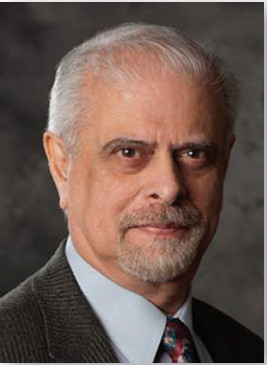Azad M. Madni
Biography
Military training devices and simulators were once expensive, unengaging, and arduous to build. Azad M. Madni changed all that. By applying a transdisciplinary human-centered systems engineering approach, he created an entirely new family of low-cost, individual and team training simulators. His innovations—now widely emulated—have led to dramatically more engaging and affordable training, including the networking of training devices to deliver vital collective-training opportunities such as training of infantry troops in concert with units that give them air support. To accomplish all this, Madni had to ensure that inexpensive commercial processors could handle the computational load of training simulators. To do so, he employed approximate-modeling and innovative selective fidelity techniques such as matching the level of fidelity of each aspect of the simulation to the needs of the training scenarios. He used intelligent agents to represent opposing and friendly forces, thus reducing manning requirements and further minimizing cost. To make training more engaging and yet realistic enough, he combined video-game technology with AI and traditional simulation approaches. It is difficult to overstate the value of his contributions to military readiness, given that most military training devices are now built following the path that he pioneered. The impact of his innovations extends far beyond the military realm. For example, his intelligent decision-aiding technology has influenced the development of conversational agents employed in smart phones. His simulation environments have been adapted to train hazardous tasks such as explosive ordnance disposal and hazardous-material recovery. Indeed, his modeling and simulation contributions are applicable to many significant global challenges. Madni is also the recipient of engineering education’s highest honor, the National Academy of Engineering’s 2023 Gordon Prize for Innovation in Engineering and Technology Education. In keeping with his philanthropic bent, he donated the Gordon Prize money to NAE and USC for pursuing advances in transdisciplinary systems engineering.
An IEEE Life Fellow, Madni is Univ. Professor of Astronautical Eng., Northrop Grumman Foundation Fred O’Green Chair in Eng., Executive Director of the Systems Architecting and Eng. Program, and faculty affi liate of the Ginsburg Institute of Biomedical Therapeutics, University of Southern California, USA.
